Australian Government
Free Julian Assange from huge debt of USD 520,000 to rotten Australian Gov

URGENT: Emergency appeal for donations to cover massive USD 520,000 debt for jet.
Julian’s travel to freedom comes at a massive cost: Julian will owe USD 520,000 which he is obligated to pay back to the Australian government for charter Flight VJ199. He was not permitted to fly… pic.twitter.com/J6sTbXij53
Why Nils Melzer describes Australian government's treatment of Assange as 'shameful.'
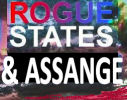 Nils Melzer’s book about the persecution of Julian Assange – Nils Melzer, The Trial of Julian Assange, A story of persecution,[1] must be heeded, due to Melzer’s extraordinary position and status as an independent international investigator and legal expert in complaints of torture and ill-treatment, [2] which has given him access to details and documents not previously available. That is probably why it is hard to get the book in Australia.
Nils Melzer’s book about the persecution of Julian Assange – Nils Melzer, The Trial of Julian Assange, A story of persecution,[1] must be heeded, due to Melzer’s extraordinary position and status as an independent international investigator and legal expert in complaints of torture and ill-treatment, [2] which has given him access to details and documents not previously available. That is probably why it is hard to get the book in Australia.
Diazepam (Valium) and other benzos cause dementia or make it worse -Aust Gov and ANSTO
 Video & transcript. This research is important because it is telling us how dangerous diazepam (Valium) and its drug family (the benzodiazepines - like Xanax and Serepax, and temazepam etc) are. Speaking as a mental health professional, I can say that people have known for a long time that benzodiazepines cause enormous harm to many people who take them. It is, however, extremely difficult to get this message out because of the power of the drug lobby.
Video & transcript. This research is important because it is telling us how dangerous diazepam (Valium) and its drug family (the benzodiazepines - like Xanax and Serepax, and temazepam etc) are. Speaking as a mental health professional, I can say that people have known for a long time that benzodiazepines cause enormous harm to many people who take them. It is, however, extremely difficult to get this message out because of the power of the drug lobby.
DFAT to appear at first hearing for the Trans-Pacific Partnership inquiry
The Department of Foreign Affairs and Trade will appear at the opening public hearing today for an Australian parliamentary inquiry looking at the merits of expanding the membership of the Comprehensive and Progressive Agreement for Trans-Pacific Partnership. The CPTPP agreement signed in 2018 is a trade bloc of 11 countries that includes Australia and is an export market of 500 million consumers worth nearly $14 trillion. The parliamentary inquiry will examine the scope for expanding the TPP beyond the existing membership of Australia, Canada, Japan, Mexico, New Zealand, Singapore, Vietnam, Brunei Darussalam, Chile, Malaysia and Peru to include new members. Find out how to view the inquiry by video at http://www.aph.gov.au/jfadt
Chair of the Trade Sub-Committee of the Joint Foreign Affairs, Defence and Trade Committee, Ted O’Brien, welcomed the opportunity to investigate the process of how the current members of the CPTPP can agree on expanding the trade pact to include other economies, and understanding what the benefits of new members joining will be.
‘On the back of this week’s historical agreement to progress a FTA with the United Kingdom, between Prime Ministers Morrison and Johnson, it is timely to consider expanding the most comprehensive plurilateral trade agreement in existence, the CPTPP,’ Mr O’Brien said.
‘Before we can assess the merits of aspiring economies that could accede to the CPTPP, it is important to baseline everyone’s understanding of the agreement, and that starts today when hearing from DFAT.’
Representatives of DFAT will appear at the public hearing at 9:50 am, Thursday 17 June 2021 in Committee Room 1R4, Parliament House.
Further details about the about the inquiry, including terms of reference, details on how to contribute a submission and, when available, details of public hearings and roundtable discussions, can be obtained from the http://www.aph.gov.au/jfadt, the Committee’s website.
Senator Alex Gallacher on Trans Pacific Partnership and Australia's need to reform treaty-making process
 Update: Full Report now attached inside this article."[...]There is an insufficient amount of publicly available information about agreements under negotiation, and independently sourced economic analyses of their likely benefits are not mandatory. In relation to the TPP, this has fuelled media speculation on the content of the agreement when certainty based on fact is required. It is unsatisfactory for complex trade agreements, which are years in the making, to be negotiated in secret and subject to stakeholder and parliamentary scrutiny for a few short months with no realistic capacity for text to be changed, and then for implementation of the legislation to be rushed through parliament unamended. This comes very close to making a mockery of the process and of parliament's involvement." (Alex Gallacher, SA, Australian Labor Party, Senate debates, Thursday, 25 June 2015, Foreign Affairs, Defence and Trade References Committee; Report [1])
Update: Full Report now attached inside this article."[...]There is an insufficient amount of publicly available information about agreements under negotiation, and independently sourced economic analyses of their likely benefits are not mandatory. In relation to the TPP, this has fuelled media speculation on the content of the agreement when certainty based on fact is required. It is unsatisfactory for complex trade agreements, which are years in the making, to be negotiated in secret and subject to stakeholder and parliamentary scrutiny for a few short months with no realistic capacity for text to be changed, and then for implementation of the legislation to be rushed through parliament unamended. This comes very close to making a mockery of the process and of parliament's involvement." (Alex Gallacher, SA, Australian Labor Party, Senate debates, Thursday, 25 June 2015, Foreign Affairs, Defence and Trade References Committee; Report [1])
I present the report of the Foreign Affairs, Defence and Trade References Committee on the Commonwealth's treaty-making process, together with a Hansard record of proceedings, documents presented to the committee. [...]
I am pleased to table this report of the Foreign Affairs, Defence and Trade References committee into Australia's treaty-making process. The timing of this report could not have been better. Only last week, the China-Australia Free Trade Agreement was signed, tabled in the Australian Parliament and referred to the Joint Standing Committee on Treaties, for inquiry and report within 20 joint-sitting days, consistent with the process that has been in place for two decades. The Trans-Pacific Partnership is also entering its final stages of negotiations, with parliamentarians told recently they could access the draft text, but only after signing a confidentiality agreement.
ChAFTA and the TPP have thrown into sharp relief evidence received by the committee from industry bodies, the union movement, academic experts and other stakeholders that the treaty-making process is in need of reform.
During the committee's hearing the Department of Foreign Affairs and Trade, DFAT, which is responsible for negotiating, consulting and finalising free trade agreements, was a lone voice in supporting the status quo. All of the 95 submissions received by the committee and every witness appearing before it over two days of hearings, with the exception of the department, argued that the current treaty-making process falls short on a number of counts.
First and foremost, all treaties, especially complex free trade agreements, are presented to the parliament and subject to scrutiny only after they are signed by the government. That parliament is faced with an all-or-nothing choice when considering legislation to bring an agreement into force prevents it from pursuing a key scrutiny and accountability responsibility. It is no longer satisfactory for parliamentarians and other stakeholders to be kept in the dark during negotiations when Australia's trading partners, including their industry stakeholders, have access under long-established and sensible arrangements.
Second, it is pointless for JSCOT to conduct its inquiries after the agreements are a done deal and signed by the government. This does not provide for an adequate level of oversight and scrutiny. Parliament should play a constructive role during negotiations and not merely rubber stamp agreements negotiated behind closed doors.
Third, the department's process of consultation is not working, contrary to what officers told the committee at a hearing. Meetings and briefings with stakeholders are plentiful but they are not as effective as they could be and fall way short of stakeholder expectations, adding to their frustration.
Finally, there is an insufficient amount of publicly available information about agreements under negotiation, and independently sourced economic analyses of their likely benefits are not mandatory. In relation to the TPP, this has fuelled media speculation on the content of the agreement when certainty based on fact is required. It is unsatisfactory for complex trade agreements, which are years in the making, to be negotiated in secret and subject to stakeholder and parliamentary scrutiny for a few short months with no realistic capacity for text to be changed, and then for implementation of the legislation to be rushed through parliament unamended. This comes very close to making a mockery of the process and of parliament's involvement.
In addressing these problems, this report steers a middle course between doing nothing, which appears to be the entrenched position of the coalition government, and recommending that treaties be subject to parliamentary approval, which is unlikely to garner political support any time soon.
The opposition favours incremental change building on the package of sensible reforms introduced by the government in 1996. This is why the report makes practical recommendations aimed at improving the level of transparency in negotiating treaties and the quality of consultations between DFAT and stakeholders, and making parliament a real player in treaty making.
Specifically, the report's key recommendations are: that the Joint Standing Committee on Treaties engage more in the oversight of trade agreements under negotiation and not wait until the end of the process; that parliamentarians and stakeholders be given access to treaty texts on a confidential basis during negotiations and not a token look at the end, as with the TPP; that trade agreements be subject to an independent cost-benefit analysis prepared up-front at the commencement of negotiations; and that a model agreement be developed as a template for all future agreements that deal with complex issues such as investor-state dispute settlement, intellectual property and copyright.
These are practical measures that improve stakeholder engagement during treaty negotiations and entrench democratic accountability through effective parliamentary scrutiny using the existing committee system These measures also better serve Australia's national interest by providing a more strategic and less reactive approach to treaty making.
The report's recommendations are consistent with the bipartisan approach of successive Australian governments to trade liberalisation, including the pursuit of free trade agreements. They do not question the constitutional parameters of treaty making or undermine the executive's authority to sign treaties or hinder the ability of the Australian government to implement free trade agreements in a timely fashion. The recommendations can be introduced quickly and without the need for legislation.
Put bluntly, the government has nothing to fear in supporting these measures. This report will lead to a better treaty-making process and, ultimately, better treaty outcomes for Australia in the future. Doing nothing is no longer an option. Treaty making in Australia faces a number of challenges which cannot be met by continuing with the existing process unchanged. These challenges include the changing nature of Australia's international obligations and their intrusion into domestic law and regulation; new methods of consultation and negotiation adopted in overseas jurisdictions resulting in less secrecy; and ensuring that DFAT is adequately resourced with the knowledge and skills to negotiate, conclude and review complex free trade agreements.
NOTES
[2] Thanks to OpenAustralia for its tracking capabilities and analysis of parliamentarian voting and other behaviour. For more on Alex Gallacher see http://www.openaustralia.org.au/senator/alex_gallacher/sa
Illegal poaching of Toothfish in Southern Ocean

The New Zealand Defence Force early in Janurary surprised a third unlicensed fishing boat, far south-east of Tasmania, illegally poaching toothfish - the ocean's "white gold". The New Zealand government so far has intercepted three ships with their offshore patrol ship, HMNZS Wellington, in cooperation with the Sea Shepherd Conservation Society.
(image: head of Patagonian Toothfish)
This summer is Sea Shepherd’s 11th Southern Ocean Defence Campaign and the first to target toothfish fishing operators in the waters of Antarctica. Patagonian toothfish, a species of cod icefish, can grow up to 10 kilograms in weight and are a highly prized eating fish.
Three ships using illegal gillnets to catch prized toothfish were operating in a protected fishery research area about 2500 kilometres from Hobart, according to details released by Interpol.
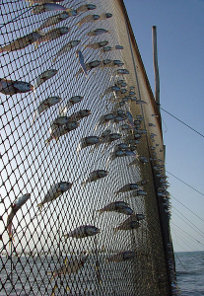 (image: gillnets)
(image: gillnets)
The illegal fishing boats, believed to be carrying a catch worth $8 million on the black market in South-East Asia, are all flying flags of convenience to avoid prosecution. Fishing in the Southern Ocean is regulated by the Commission for the Conservation of Antarctic Marine Living Resources (CCAMLR).
Thanks to the New Zealand Navy operating in waters south of Australia, they were able to disclose the presence of three criminal ships using illegal gillnets to catch prized toothfish, operating in a protected fishery research area about 2500 kilometres from Hobart.
In contrast, the ship tasked with Southern Ocean patrols for Australia, Ocean Shield, was at found to be at anchor off Christmas Island. Our government promised that the vessel would be employed on two 40-day patrols of the Southern Ocean. We have criminals in our marine "backyard", but the Australian ocean patrol vessel, Ocean Shield, is on AWOL!
The duty of patrolling the Southern Ocean has been silently abrogated to our neighbouring New Zealand, and a not-for-profit organisation.
Minister for Immigration and Border Protection, Peter Dutton, said the government remained committed to the protection of Australia's sovereign territories and interests in the Southern Ocean, but their priorities were elsewhere!
This broken promise by an Australian government in neglecting the security of our oceans is alarming, disappointing but not surprising.
Our Australian government has for years ignored Japan's thinly disguised "research whaling", and by procrastination and hollow protests, have allowed the killing to go on relentlessly, without redress. Similar to years of failure of our Australian governments to monitor and halt illegal whaling, this government is failing to control the illegal poaching of prized toothfish!
If poacher are fishing from a boat that is not signed up to the CCAMLR agreement then the illegal fishing boat is simply fishing on the high seas and prosecution is almost impossible. The only way to prosecute a boat for illegal fishing is to prove that its owner is from a country signed up to CCAMLR.
Gillnets pose many threats, and they are more effective and deadly than longlines. The level of incidental bycatch is greater, and lost or abandoned gillnets have the potential to continue killing marine life through ‘ghost fishing’.
At least the Sea Shepherd Conservation Society will continue to hunt down the illegal vessels.
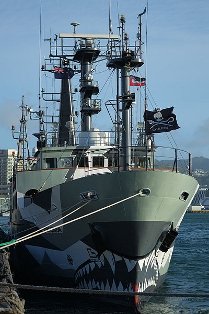 (image: Sea Shepherd vessel Sam Simon berthed in Wellington)
(image: Sea Shepherd vessel Sam Simon berthed in Wellington)
Successful poachers are making mockery of Australian law, and our so-called national security. It appears that Minister for Customs and Border Protection, Peter Dutton, has gone to sleep at the wheel, or has abrogated his duties to a successful, vigilant and a service at no cost to the taxpayers from a not-for-profit organisation?
Climate change denial - believe it or not!

The government's repeal of the "carbon tax" won't make climate change go away! it’s a political decision, not one based on science, or a rational reaction to any new empirical evidence contrary to its existence.
Denial of climate science is one that’s based on the assumption that you can believe it or not! We don’t doubt the findings of other scientific results, or discoveries.
According to the National Climate Assessment, the world is currently experiencing the effects of climate change, or the shifting of the planet’s climate zones due to environmental factors.
Small island states such as Tuvalu and many other countries have been shocked by the obstructive tactics of Australia at UN-sponsored climate change talks at Warsaw last year, particularly over negotiations to set up a new institution to deal with Loss and damage, a new mechanism for compensation to countries that suffer from climate change. Numerous other countries expressed their shock that major industrial nations had wound back their targets, rather than increasing them. This was widely seen as a direct reference to the stance adopted by Japan, Canada and Australia.
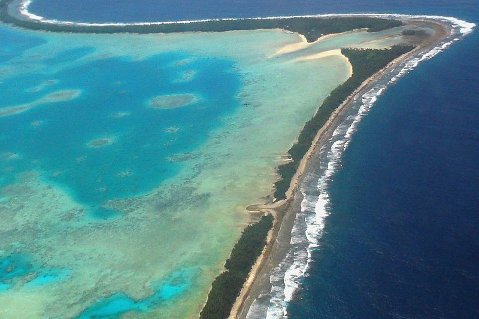
(Aerial view of Tuvalu’s capital, Funafuti, 2011. Tuvalu is a remote country of low lying atolls, making it vulnerable to climate change.)
In a radio interview with Neil Mitchell, Australian Prime Minister Tony Abbott said that the Head of the UNFCCC, Christiana Figueres, is "talking through her hat" for connecting the NSW bushfires with climate change and that "these fires are certainly not a function of climate change, they are just a function of life in Australia."
The trick of Climate denial has been to pretend they are arguing science, but they are in fact impeding science education to the broader public to maintain general ignorance as a political lever.
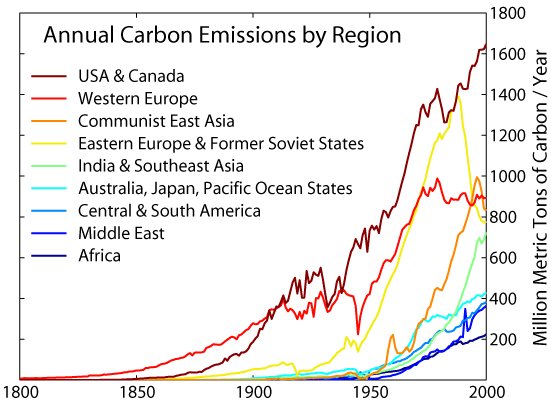
(This figure shows the annual fossil fuel carbon dioxide emissions, in million metric tons of carbon, for a variety of non-overlapping regions covering the Earth.)
The problem is that climate change is long-term, and has tremendous implications for our economic model, government agendas, and the habitability of our planet. Anthropogenic climate change is bigger than the sum of us! It’s too big for governments and politicians to handle, and the whole economic paradigm of “growth” and “progress” is under threat!
Per head of population, we are some of the biggest emitters on the planet, and population growth is a strong driver of absolute emissions. There's bipartisan support for continuing population and economic growth, projecting future emissions trajectories.
In Australia we are also experiencing the impact of warming. Australia had its hottest year on record in 2013 a pattern ominously intensifying in 2014. Long heat waves extreme fire danger and a lengthening fire season, are all part of the new normal. The frequency of record heat events has doubled from the middle of the 20th century to the present, and over the past decade, record high temperature events are occurring three times more frequently than record cold temperatures.
UK
The United Kingdom experienced its coldest spring since 1962. Snow fell in record amounts in northern regions—in late March. This harkened back to the bitter 2012 European cold wave that brought freezing temperatures across the continent, resulting in hundreds of people freezing to death.
United States
Half of the United States is suffering through drought conditions — including all of California, which saw huge swathes of the San Diego area swept by raging wildfires during May this year.
Large portions of the United States are currently experiencing the effects of a "polar vortex", an area of low pressure bringing dangerously cold air over the country. Temperatures in the Midwest and Northeast are below zero in many areas, with wind chills as low as -50 degrees.
Temperatures in many cities are expected to hit record lows, 30 to 50 degrees below typical averages. Thousands of flights have been cancelled, and schools across the country have been closed.
If the earth is really becoming a scorched wasteland then why are winters still cold; why does it rain in the summer; why are there cool days in the summer and why does it still snow? These experiences cannot be used as evidence to disprove global warming.
Melting of Arctic sea ice and the resulting cold rush of wind dipping south are seen as the main temperature suppressors. The dip in the so-called "polar vortex"—which occurs when temperatures warm in the Arctic, directing cold winds southward—sent chills through the northern U.S. in January 2014, making Chicago colder than the South Pole. This phenomenon can be understood to result from the rapid melting of polar sea ice, which replaces white, reflective ice with dark, absorbent open water.
Australia
While Australia rejoices in the heaviest June snowfalls this century, climatologists say that one of the clear effects of climate change is fewer snow-bearing systems making their way from the Southern Ocean to the Australian Alps.
A rare Australian possum is being dubbed the "new polar bear" of climate change. The possums are found mainly in a far north Queensland rainforest on a single mountain range about 1000 metres above sea level.
Their numbers were in the thousands when a severe heat wave hit the area in 2005, which all but wiped out the species.
It's all too easy to blame climate change when Australia has the greatest rate of mammal extinctions in the world – since European settlement. Human activities, land clearing, feral pests and fragmented habitats have driven many animals to extinction. Weakening of environmental laws, loosening land clearing regulations, and a slash to funds for climate change are all wreaking havoc on native species.
Just four white lemuroid ringtail possums have been found in the wild and scientists say the species could soon become the first creature to be wiped out by global warming.
China's plans to reduce emissions backfire!
50 coal gasification plants, aimed in part at reducing pollution from coal-fired power plants in China's largest cities, will shift that pollution to other regions, mostly in the northwest and generate enormous amounts of carbon dioxide. Coal-to-gas, or coal gasification, is a water-intensive process that generates enormous amounts of carbon dioxide, which is the main greenhouse gas destabilizing the world's climate. China is responsible for half of the annual global coal consumption and is the world's the biggest emitter of greenhouse gases, followed by the United States.
The carbon dioxide they produce would equal about an eighth of China's current total carbon dioxide emissions, which come mostly from coal-burning power plants and factories, the organisation said.
Greenpeace says China's energy plans exacerbate climate change
Government concedes to increase greenhouse gas emissions
Despite the moderated emissions growth outlook from previous projections, underlying factors such as population and economic growth underpin a steady increase in emissions.
.
This growth is bolstered by the continued strong demand for Australian energy exports, in particular, the expected significant expansion of the liquefied natural gas (LNG) industry and coal exports. Agriculture emissions are expected to increase after 2020, as production is projected to expand across all major agricultural commodities.
Australia’s Abatement Task and 2013 Emissions Projections
National vehicle kilometres travelled (VKT), by all Australian vehicles, are projected to increase by around 1.7 per cent per annum between 2007 and 2020 under the BAU assumptions. By 2020, BITRE (Bureau of Infrastructure, Transport and Regional Economics) projects base case emissions to be close to 70.3 per cent above 1990 levels (at 105.2 million tonnes of CO2 equivalent). Australian transport demand is highly dependent on underlying economic and population growth, and relatively inelastic with regard to fuel prices.
BITRE: Greenhouse gas emissions from Australian transport: projections to 2020 Working paper 73
Rightwing powerhouses realise the financial potential of denial and turn reasonable men and women into conspiracy theorists. If politicians and deniers admitted they were wrong on climate change, they might have to admit that they were wrong on everything else and their whole political identity would unravel.
Even with all the scientific data that supports global warming there are deniers that will not accept the facts. Instead, they confuse uninformed citizens by creating pseudoscientific articles and websites that are filled with unproven statements.
Australia must show some leadership in the world, and accept some responsibility towards climate change and the devastation it will cause. Instead we are falling behind as global citizens, and risk becoming an outpost on the world stage.
Unemployment Rate is a misleading government watered-down statistic designed to pacify the people
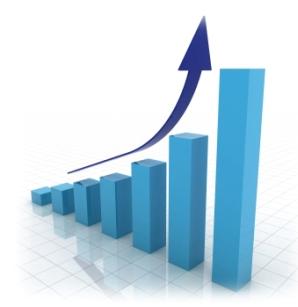
To be unemployed is to not have a job.
In the traditionally accepted sense, a real job is a permanent full-time job.
But government measures of unemployment have been watered down so much so that the unemployment rate excludes so many people in order to make the statistic portray the economy better than it really is. Governments get savagely criticised in the media for high unemployment rates because government is regarded by the people as an outcome of how the government is running the economy. So if the published unemployment rate is low, government economic performance looks good.
Unemployment Rate a misleading statistic designed to pacify.
Australia's June 2010 unemployment rate was officially 5.2%. What does that number mean?
It is calculated by dividing the number of CentreLink registered unemployed into the total labour workforce. So 5.2% is 603,400 registered unemployed divided by estimated labour workforce of 11,661,538. But the 603,400 is only those registered with CentreLink.
Australia's 'estimated resident population' (ERP) at 31 December 2009 was 22,155,000 persons. Since there was a 432,600 increase over the previous 12 months, then from December 2009 to June 2010 (half a year) would mean about another 200,000, so by June 2010 Australia's total population would have been about 22,355,000 people.
If the government's 'labour force' is 11,661,538, then the remaining 10,693,462 of Australians are not in the labour force. That means not 603,400, but over 10 million, or nearly half of the Australian population is not working, for what ever reason - age, disability, choice, not registered, whatever!
Let's look at the official government employment statistics for June 2010:
'Employment' totalled 11,077,600 people, of that 'Full-time employment' totalled 7,794,700 people. This means 3.3 million Australians (some 30%) of those working, do not have a full time job.
But just like people have learnt from experience to distrust government on most matters, government statistics like 'unemployment rate' are also not to be trusted.
Australia's true unemployment is the number of people of working aged not in full time employment. The government defines the people of working age to be between age 15 and age 64 (retirement age).
On this basis, let's do the sums.
'Full-time employment' totalled 7,794,700 people.
Australia's adult population aged 15-64 can be extrapolated from 2009 ABS 'WORKING AGE POPULATION (AGED 15-64 YEARS)' data.
'During the 20 years between 30 June 1989 and 30 June 2009, the proportion of population aged 15-64 years increased from 66.9% to 67.5%.'
So if the June 2010 total Australian population was 22,355,000, then 67.5% of that would mean that Australia's working age population was 15,089,625, or say 15 million to be conservative.
So 'Full-time employment' of 7,794,700 people divided into 15 million makes true unemployment 52%. That is ten times the government's official rate!
In the traditionally accepted sense, where a real job is a permanent full-time job, Australia's true unemployment rate is 52%!
That is bloody disgusting government performance.
Our Misconception of Australian Democracy
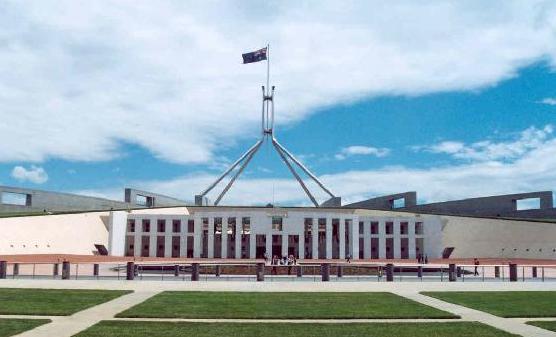
Democratic Presumptions
As Australians we pride ourselves with the presumption we live in a democracy, benefiting from the universally accepted principles of 'equality and freedom'.
We are supposed to have a "government of the people, by the people, for the people" [Abraham Lincoln (1809-1865], where our Constitution underscores basic personal and political rights, fair and free elections, and independent courts of law.
Every individual Australian and social group is supposed to have a guarantee of basic human rights. We are supposed to have a separation of powers between the institutions of the state - government [executive power], parliament [legislative power] and Courts of Law [judicative power].
We are supposed to have the freedom of opinion, speech, press and mass media, religious freedom, one person - one vote, and our governments are supposed to exercise good governance in public interest and free of corruption.
Failings of Representative Democracy
In Australia, we are denied direct democracy ('people power'). Why?
Is our political system intended to benefit of the dominant political parties and the interests of their corporate financiers, or the people of Australia?
Why are Australians forced into accepting this lesser standard of 'representative democracy simply due to British commonwealth heritage'?
Elected representatives of the people are supposed to make decisions that represent the wishes of the people, but they don't. Typically in the run up to elections, the political parties nominate their favourite (compliant) candidate and then spend the vast us of money they get from wealthy financiers attached with guarantees of payments in kind (i.e. bribes).
These party brown nosed candidates promise all sorts of things to the electorate which they have targeted from the same funds to pay for professional electorate research. Thee same funds to pay for clever targeted campaigning. Of course the dominant parties get voted in. Independent candidates don't have a democratic chance except once in a blue moon if they have financial resources behind them.
But Australia is not America. Most Australians would disagree that wealth needs to be a condition of entering parliament in order to represent the people. Yet this has become the reality of Australia's electoral process. The two dominant political parties, Labor and Liberal continue to be recipients of obscene levels of financial donations received as inducement for political favours in kind. Such systemic practice is no different to the infamous corruption of nations to Australia's north. It is corruption no less.
Former Prime Minister Ben Chifley, the son of a blacksmith and a train engine driver from Bathurst wouldn't stand a chance in 21st Century Australian millionaire sponsored politics. Yet perhaps like no other Australian prime minister, Chifley remains regarded as one of Australia’s most respected Prime Ministers. Chifley maintained his connections with his electorate at Bathurst until the end of his life. He was born and raised in Bathurst. He held represented the people of the Macquarie Electorate (including Bathurst) throughout his political life. He is buried in Bathurst. Chifley was a true democratic representative of his electorate and he extended this philosophy to his prime ministership of Australia during our uncertain and impoverished post WWII period.
Australia's 'parliamentary democracy' remains a British model adopted over a hundred years ago. It perpetuates an undemocratic dominant two party system allowing the slimmest of majorities control the country, but this is not representing the people.
Australian voters only get an opportunity to choose their representatives once every four years. They base their vote on the promises by their local representative on delivering what most of the people want of their government or the next four years.
But between elections, aside from protests by the Opposition parties and the media screaming to hold the elected representatives accountable for their election promises, voters are denied any say.
Australia's Illiberal Democracy
Australia has a narrower definition of full democracy. It has become less tolerant, less encouraging of real political reform and social progress and less respectful of civil liberties.
Although elections across Australia are conducted fairly, candidate pre-selection and branch stacking is undemocratic, voters are excluded from government agendas, denied any say into party policies, denied any say in drafting legislation, denied any say in constructing government budget priorities. Party politics is where the real political power lies in Australian politics, but this is not democracy.
Our so-called elected representatives keep letting us down. Look at Howard and Rudd! Look at Garrett or Costello! These lot are controlled by their own political party agenda, and Party discipline comes before the wishes of a member of parliament's electorate. Our legislative voting is along party lines, not according to the say of local electoral seats these 'representatives' are supposed to represent.
If every parliamentary lower house and upper house vote was allowed a conscience vote, secret ballot and a vote that represented the wajority wishes of an MP's electorate we perhaps would have genuine democracy, but this doesn't happen. Look what the 'party' did to Liberal Opposition Leader Malcolm Turnbull when he exercised a conscience vote against Liberal Party policy supporting the government on the Emissions Trading Scheme.
Party gagging policy is more than undemocratic; it is Politburo.
Capable leaders of principle in Australia such as Malcolm Turnbull, Bob Carr, Neville Wran, Andrew Refshauge, Craig Knowles, Laurie Brereton, Petro Georgiou and Graham West are discouraged and discarded by Australia's unprincipled party politics. Any wonder why Australian politics lacks capable leaders. Leaders get more respect in the corporate sector.
Australia has effectively an 'illiberal democracy' - one in which, although elections take place, voters are excluded from the political agenda of party politics, denied any say into party policies, denied any say in drafting legislation, denied any say in constructing government budget priorities. Party politics is where the real political power lies in Australian politics.
In fact we have an illiberal democracy, in which, although elections take place, citizens are cut off from knowledge about the activities of those who exercise real power because of the lack of direct democratic power by the people.
Australia's dominant two political parties are right-wing - economically liberal and socially conservative. Liberal and Labor are almost indistinguishable in political and social philosophies. They are merely 'Lib-Lab' factions of the same philosophical oligarchy.
Australia's mainstream media are not independent. They are dominated by Murdoch's News Ltd and Fairfax - a similar oligarchy with allegiances to the two dominant political parties. They shape public thinking to the agenda of the major political parties and deliberately omit publishing news and issues not aligned with the interested of these two parties.
Australian are denied a bill of rights or human rights act. The dominant parties argue that rights are already well protected in Australia in the Constitution, the Courts and by our parliamentary processes an freedoms. But Australian law does not recognise universal human rights in Australia. Look at the treatment of asylum seekers and anyone suspected of being a terrorist by ASIO or anyone suspected of being a member of a 'bikie' gang in South Australia. Such people can be detained without charge by police just like they are in dictatorships.
Most Australians are denied fair access to our legal system because of its prohibitive cost. Parliamentary laws are increasingly made to give absolute discretion to the minister of the day, who make party political decisions. Development planning and environmental legislation are current examples at both federal and state levels. There may well be separation of powers between the government and the courts, but increasing legislation is being drafted to remove the discretionary powers of the judiciary - again especially in relation to development planning and environmental legislation.
We are supposed to have the freedom of opinion, speech, press and mass media, yet the Australian Communications and Media Authority controls and regulates broadcasting, radio communications and telecommunications and Internet content standards. Currently, the current federal Labor Government is proposing to implement pervasive Internet filtering legislation which will censor all online content.
Australian governments do not exercise good governance. They waste countless billions of public moneys (Rudd's failed insulation scheme, Defence spending wastage, school building programme associated with Rudd's Education Revolution).
And Australian governments have recurring history of corruption.
The abuse of privilege and parliamentary code of conduct by NSW Labor's MP in Penrith, Karen Paluzzano and Minister Ian MacDonald do not send a positive message to the electorate that NSW Labor can be trusted.
Australian Political Reform
What is needed is political reform in Australia. This has many dimensions. The first step is that Australians need to translate their dissatisfaction with the dominant parties, their frustration with the political process, their dis-empowerment by being in 'safe seats', their disillusionment with repeated broken election promises into calls for political reform.
Enough is enough!
Sir Winston Churchill may well have famously said, "It has been said that democracy is the worst form of government except all the others that have been tried", but British style constitutional democracy has evolved since the Magna Carta. Why stop evolving it?
Electoral Mandate Imperative
We need a overriding 'electoral mandate' enshrined in the Australian Constitution.
Although Australian elections are not rigged like in Nigeria or Sri Lanka, Australia has a history of gerrymandering, of branch stacking, and a system of party pre-selection for representative candidates.
Preselection of political party candidates for Australian electoral seats at both state and federal level, are appointed typically by a selection committee with a political party which sets rules and conditions for candidates to ensure the agenda of the party is perpetuated. It is a party within a party - a faction. It perpetuates its own party power and influence by choosing who it lets in.
The people of the electorate have no say in the process. In many cases even the rank and file party membership has no say in the process. In 2003, the factional Right in NSW Labor 'installed' Tanya Gadiel, a staffer in Police Minister Michael Costa's office, as Labor's candidate for the 'safe' Labor electoral seat of Parramatta. The electorate were denied a say. Even the rank and file membership of Labor's Parramatta branch were denied a say. The popular former Mayor of Parramatta, David Borger, was cast aside because he belonged to Labor's left faction. Preselection perpetuates political factionalism. It ignores merit and favours cronyism. It is undemocratic.
Political party 'safe seats' practically guarantee power retention by one of the dominant political parties. The federal seat of Kingsford Smith in southern Sydney has long been a safe Labor seat. It was held by Labor's former Deputy Prime Minister Lionel Bowen between 1969-90. Bowen handed over the keys to Laurie Brereton who was a prominent cabinet minister in Keating Ministry. Before retiring in 2004, Labor engineered the local numbers to allow Peter Garret to win pre-selection,who has become Labor's federal environment minister.
Australia's sense of electoral mandate has been eroded by governments not being legally held to account when they break their electoral promises.
Just what do elections entrust governments to do? What are the parameters of that trust?
What happens when those parameters are exceeded mid-term or simply ignored?
At present, nothing! This is undemocratic and unacceptable.
Former Prime Minister John Howard's distinction between 'core and non-core promises' were unacceptable. The concept of a politician at election time making non-core promises is to mislead the electorate. Similarly, Opposition Leader Tony Abbott's claim that only his scripted remarks can be taken as "gospel truth" but "in the heat of discussion you go a little bit further", also unacceptable.
Australians have a right to expect and rely on the promises and undertakings made by politicians. Australians have a right to expect their elected representatives will rightfully represent them in parliament, will listen to their needs, be ethical, respect Australian values, exercise their delegated power with due diligence and appropriate governance.
Politicians and political parties have a moral contract with the people when making electoral promises. That moral contract needs to be enshrined in law. Broken promises and exceeding promised parameters constitute a breach of electoral contract and this needs to start triggering re-elections.
URGENT! Contact Peter Garrett re Injunction to stop Repco Rally
Dear lovers of Planet Earth, animals, nature, peace and justice
An Injunction is being served on Repco Rally Australia tomorrow Thursday 2.15pm forcing Peter Garrett to call in their ecological survey for review. Please contact the Minister ASAP before then asking him to call in the rally.
There are 12 nationally listed threatened (endangered and vulnerable) fauna in the area and 34 migratory birds that have not been adequately assessed. These are species of national environmental significance that need to be reviewed. Factors such as the stress induced by 'mitigation measures' (low-flying helicopters, compressed air sirens and hand horns) will contribute to death of species from nest/fledgling abandonment. Stress myopathy deaths of macropods were not addressed. Barriers by creeks containing endangered Giant Barred Frogs will not contain the substantial dust and sediment generated by more than 100 rally vehicles going over 200kph along 350k of dirt roads every day for 4 days.
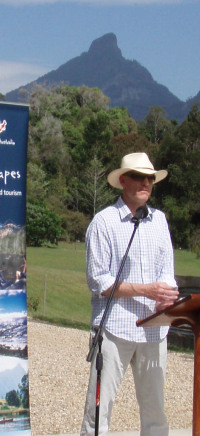
the Green Cauldron
It is absolutely appalling that this rally has been forced on one of the most biodiverse areas in Australia in breeding season for the next 10-20 years, especially when 2/3rds of them are already endangered! Clearly the Minister for the Environment has a duty to protect our fauna. Australia has the worst reputation in the world for mammal extinctions having driven 38% of its mammals extinct since the early settlers arrived. This is just not good enough!
What you can do:Ask the minister to use his powers and protect the Green Cauldron (that he christened) to cancel this race ASAP.
Tel: (02) 6277 7640
Fax: (02) 6273 6101
Email: [email protected]
Maroubra office
[t] 02 9349 6007
[f] 02 9349 8089
Also send this alert to everyone you know, individuals, animal rights, environmental, wildlife carers groups you know. The above photo is a NASCAR test run that hit a coyote in U.S.A. recently.
Additionally, there are three other events occurring on the Fathers' Day weekend:
1. the Australian Tarmac Challenge http://www.duttonrally.com/new_south_wales_2009.php ,
which is coming up the coast to join in with the WRC special events section.
a quote from their site
" The 2009 Australian Tarmac Challenge will be huge, and kicks off with the Victorian event in May. Entries are now open for all cars, regardless of age or specification, the only requirement is that your vehicle is registered and roadworthy (includes Rally plate cars).
"No experience is necessary, the only prerequisite is that you love your car and love driving! If you’re a first-timer, you might want to read our FAQ section HERE, or email ask and ask anything you like, regardless of how silly you think your enquiry might be."
2. Then there is the Frontier Services Classic Outback trial with another 50 rally cars to run with the WRC on the dirt http://classicoutbacktrial.com.au/cot/Links.asp
quote “With the RRA organizers running Speed on Tweed that same weekend, there will be such a massive motor sport presence in the Murwillumbah and Tweed area that it will be like a mini ‘Goodwood’ and will attract enthusiasts from all over Australia.”
Many wallabies will be in the path of the rally not to mention those who will die from stress myopathy in the weeks following.
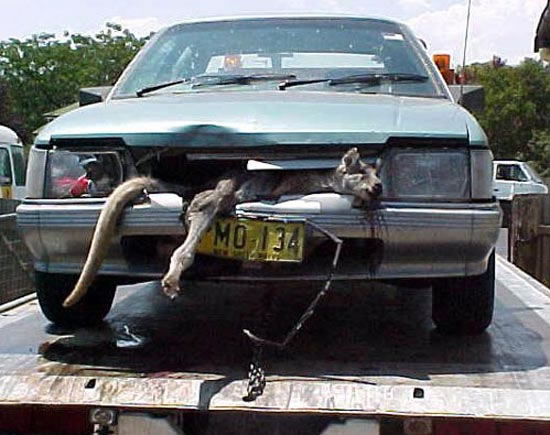
3. And then will be the 182 entries for Speed on Tweed .
4. The WRC
Plus all of above's crews and support teams and fans. If you dont like cars then its just bad luck. If you don't being locked in your house unable to get out to go to work, take kids to school, go shopping, go to appointments etc. tough. How much did our dear councils know about that lot????
Learn more at http://www.norallygroup.org - contact us for details at email [email protected], phone (0438) 357 452
What you can do
Please attend protests against the rally
Peaceful protests against the World Rally. Each protest will be a silent vigil. Please remember to bring banners.
When?
There are 5 protest vigils planned:
| Sat, 29 Aug | 9:00 AM | Opening Ceremony -- Kingscliff. Bring banners! | |
| Fri, 4 Sep | 9:00 AM | Protest Gathering -- Byangum Bridge. Bring banners! | |
| Sat, 5 Sep | 3:00 PM | Protest Gathering -- Lynches Creek Phone Peter Lanyon on (02) 6689 7404 for details. |
|
| Sun, 6 Sep | 2:30 PM | Protest Gathering -- Uki Main St Crossing | |
| 4:45 PM | Ceremony -- Kingscliff Phone Kim Hollingsworth on (02) 6679 5881 for details |
The Final Ceremony will have live TV coverage, so please make a special effort to bring banners for that protest.
Thanks,
Menkit
The animals thank you ... 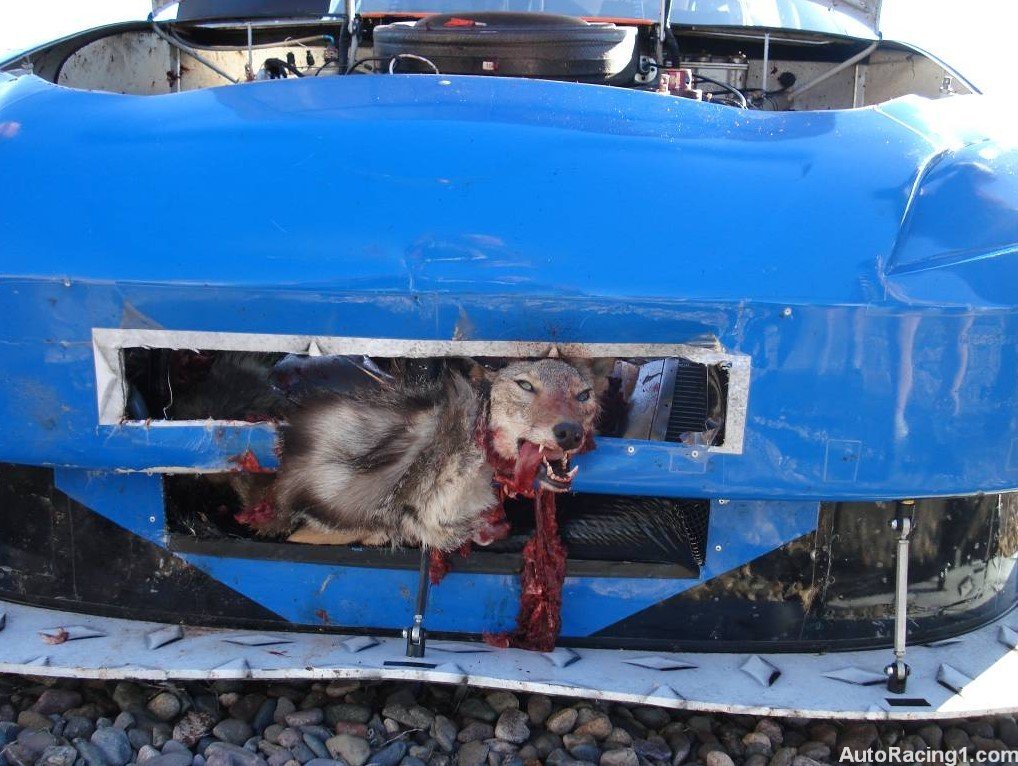
See also: Repco Rally route - the calm before the storm of 26 Aug 09, REPCO Rally injunction raced through court up blind alley of 31 Aug 09.

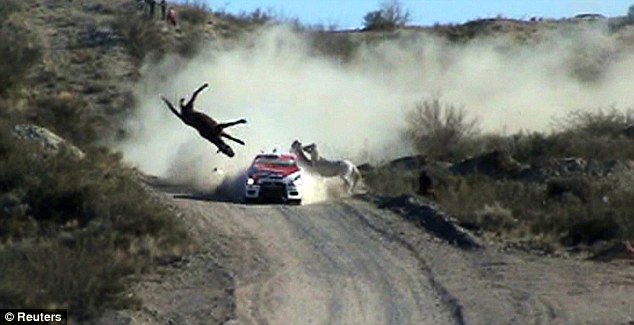
Recent comments